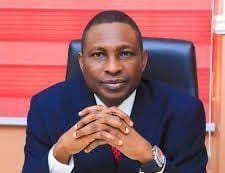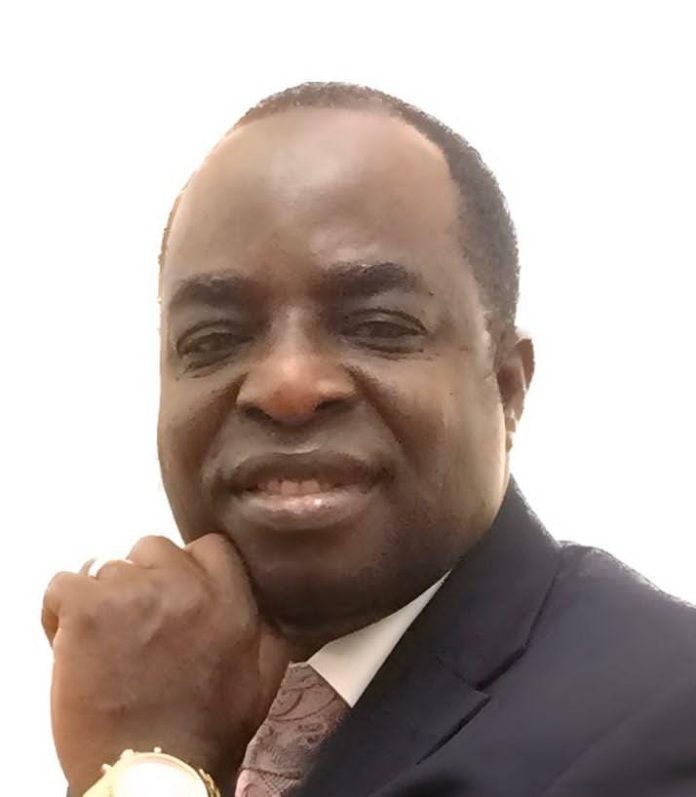In a solidarity statement made available to journalists in support of the “Nigeria Walk Against Corruption” organized by the Economic and Financial Crimes Commission (EFCC) to commemorate this year’s celebration, Oladele stated that fighting corruption without the involvement of the people and civil society organizations is like trying to control flood and erosion with palm tree fences.
By Mabeline Amara, Abuja
As the world marks this year’s International Anti-Corruption Day today, an anti-corruption expert and former Chairman of the House of Representatives Committee on Financial Crimes, Hon Kayode Oladele, has called on the general public to take ownership of the fight against corruption by supporting the activities of the Economic and Financial Crimes Commission (EFCC) and other anti graft agencies.
The theme of this year’s event, according to the United Nations Office on Drugs and Crime is “Uniting the World Against Corruption”.
In a solidarity statement made available to journalists in support of the “Nigeria Walk Against Corruption” organized by the Economic and Financial Crimes Commission (EFCC) to commemorate this year’s celebration, Oladele stated that fighting corruption without the involvement of the people and civil society organizations is like trying to control flood and erosion with palm tree fences.
He added that the corrupt people do not live in another planet, saying that. They do not have different physiologies and other physical characteristics that differentiate them from the rest of society- they are simply part of the society and in many instances, they are even more clever than the rest of society.”
He also said, “Corruption is a formidable enemy of progress and in reality, it can be said to have much of its roots in society because virtually nothing moves in our society without one form of corruption or the other, ranging from petty to grand corruption -looting of natural resources like petroleum products, bunkering, etc; judicial corruption; human rights violations; all types of anti-people and retrogressive policies, destruction and looting of public assets and systems such as health, education, and others. Because of corruption, people are compelled to pay for services that should be free”. .
According to Oladele, the involvement of the people in the fight against corruption cannot be over emphasized if we are to realize the government’s efforts to rid the country of corruption..
He said, “The Economic and Financial Crimes Commission Act in Section 6 (p) and (q) (functions of the Commission) also empowers the commission to carry out and sustain rigorous public and enlightenment campaign against economic and financial crimes within and outside Nigeria and carry out such other activities as are necessary or expedient for the full discharge of all or any of the functions conferred on it under the Act while Section 12 gives the EFCC power to set up any committee as may be necessary to assist the commission in the performance of its duties an functions under the Act.”
Oladele also emphasized that the requirement for people and civil society participation in anti-corruption efforts is supported by UNCAC’s Article 13, which specifically states that “each State Party shall take appropriate measures, within its means and in accordance with fundamental principles of its domestic law, to promote the active participation of individuals and groups outside the public sector, such as civil society, non-governmental organizations and community-based organizations, in the prevention of and the fight against corruption and to raise public awareness regarding the existence and gravity of the threat posed by corruption.

“ Also, our National Anti-corruption Strategy rests on five pillars, namely: Prevention of Corruption, enforcement and Sanctions, public engagement, campaign for ethical reorientation and recovery of proceeds of corruption.”
“These provisions become necessary in view of the fact that awareness on the part of the public is important for the works of the EFCC and the ICPC.
“It is also aimed at building public support for anti-corruption war and to ensure that apart from punishing corruption, efforts should be made by the anti-graft institutions to prevent corruption, to educate the civil society on how to resist corruption and manage the risk. People expect their leaders to carry out their duties with a high degree of honesty and accountability”, Oladele added.




